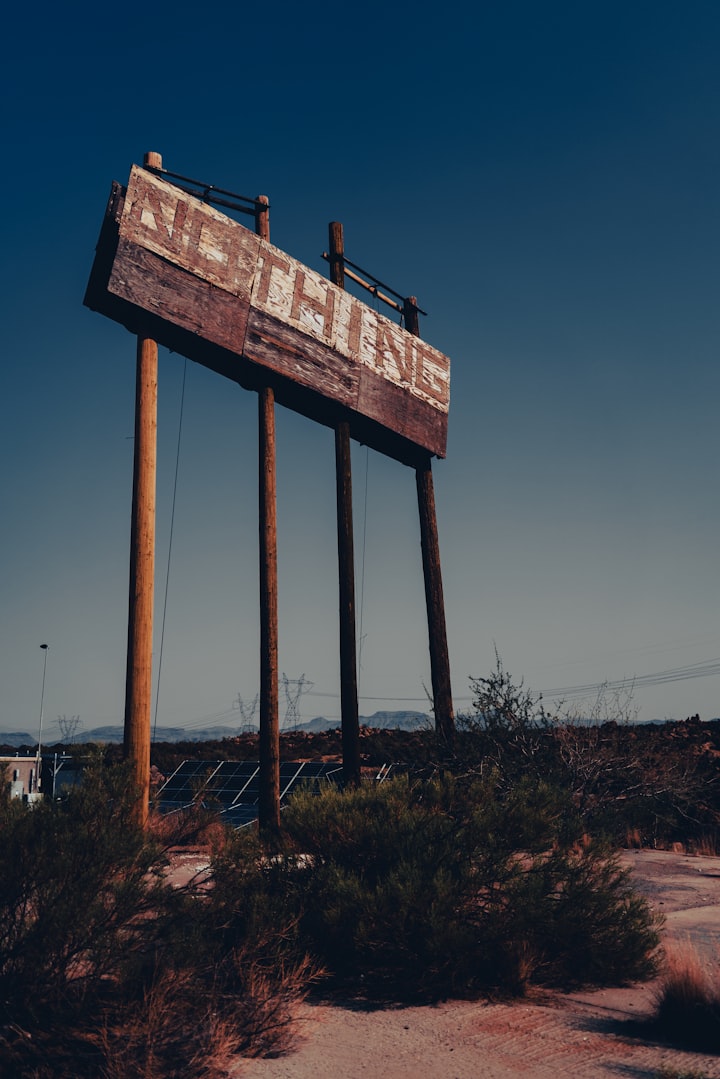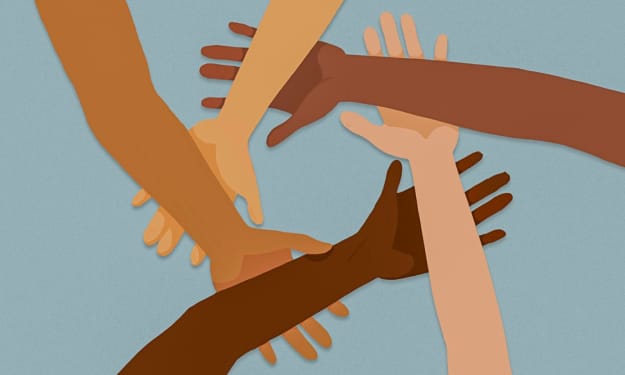Unraveling the Trauma Knot: A 3-Step Path to Freedom from a Turbulent Past
How I escaped childhood trauma

I grew up in a poor, turbulent, and dysfunctional household surrounded by alcohol addiction, violence, hospitalisations, and police interventions.
Directly because of this environment, I developed debilitating OCD, anxiety, and panic attacks.
I went through a period of significant self-harming, I drank heavily for years, I dabbled in hallucinogenic drugs that destroyed my fragile mental health and I hated myself, believing I was fundamentally flawed as a person.
This mindset helped me destroy a relationship with a girl I wanted to marry when I was 23. At 30, I was completely trapped in a corporate career I hated, not knowing how to do anything but punish myself.
But I was able to turn all this around. All of it.
And I want to explain to you how I did it. This isn’t about me being a hero (I’m not) and it’s not a rags-to-riches story, this is about the path to emancipation from pernicious toxic thought.
This is the article I wish I had read when I was 17. Or 21. Or 27.
Your past doesn’t have to be your future. You are not trapped, no matter how much it feels otherwise. Your history is not you, that’s just your origin story.
I want to explain the steps I took to tiptoe out of personal despair and learned helplessness to show how it’s possible to have a better life.
I’m not a genius, nor do I have all the answers, but if I can free myself from childhood trauma, so can you.
I’ve split this story into 3 steps so it’s easy to understand, but let me be clear; when I went through this process, it was not a clean transformation that could be neatly sub-categorised. I didn’t think “I’m in stage one.” I didn’t even think I was going through a process.
Reality is messy and chaotic, full of self-doubt and confusion. Only hindsight is 20/20. We join the dots looking back, not forward.
So, stick with a process, believe in yourself and believe the universe is conspiring to help you. Because it is. I hope this short story can help you create a life that is lighter and freer than before.
Let’s begin.
Step One: Awareness
It took me years to realise I was fucked up.
I remember sitting by a warm blue swimming pool on a Croatian holiday in 2005, drinking beer and waxing lyrical to my friends about why therapy is bullshit. I told them someone like me would never need such intervention.
9-years later I was walking into a therapist’s office, desperate and on the verge of a breakdown.
Awareness of the problem is the first step before all else can begin. You cannot dig yourself out of a hole until you realise you’re in one.
This first step takes serious work. It is the hardest step of all. It’s why you get a round of applause when the impossibly impactful words “I am an alcoholic” come out of your mouth at an AA meeting in a draughty church basement on a Tuesday evening. It is why healing begins the moment you walk into a therapist’s office.
Awareness is where it all starts.
But it’s hard. When you are a fish, it takes serious work to spot water.
I believed for years my tumultuous upbringing was normal because it was normal for me.
When I told a school friend about my dad smashing up the house phone in a drunken rage he said, “If that happened to me I’d be halfway to Scotland by now.” I couldn’t understand his shock. That was a normal occurrence in my house; a nothing incident.
Another time, a school teacher said no one should hit their wife and I argued that was an unrealistic expectation, so desensitised to domestic violence I had become.
I was in a mentally unhealthy place but I wasn’t aware of it.
I had nervous twitches as a child, but as a teenager, when hormones ramped up, they amplified my neurosis to fever-pitch levels of OCD.
I dealt with them as best I could, though never acknowledged I was suffering or traumatised. But a dysfunctional past will get you one way or another. It can’t be ignored, it has to be dealt with.
In 2014, I picked up the phone and booked a session with a psychotherapist. That mere act rang the bell of awareness in my soul and I began my journey to recovery.
Together, my therapist and I edged around some issues until my childhood kept arising. I was more surprised than he was, I had been in denial for so many years.
We spent time exploring my past and after a few months under his stewardship, he recommended I attend group therapy for adults who had grown up in alcoholic families.
I was hesitant but wanted answers. My therapist said, “I think you’ll find this experience quite profound.”
He was right.
It turned out to be nothing short of amazing. To hear people had identical experiences to me was incredible. I thought I was the only one.
It opened the gate for step two.
Step Two: Acceptance
Acceptance is the second stage of healing.
I never wanted to accept I was a victim, but this meant I couldn’t heal. One of the 12 steps to recovery is admitting you are hurt.
Therapy, especially group therapy, taught me it was OK to be traumatised. It taught me “self-parenting” because, crucially, you cannot go to the source of your pain for your healing.
My father would never apologise. He would never acknowledge his tyrannical reign over the family home. And it was pointless to chase it. There is no resolution to be found there, only acceptance to what had happened and how it has made me feel.
Some profound moments of acceptance came to me like a bolt out the blue. The most potent was from another group member after an intense group session.
“You told me your dad was an alcoholic,” said the Scottish man as we collected our belongings and people stacked away chairs.
“Yeah,” I said.
“You told me his dad, your Granddad, was an alcoholic too,” he said.
“That’s right” I responded. “Alcoholism runs in my family.”
“Then he didn’t stand a chance. He was just like you. You both had alcoholic fathers,” he responded.
In a flash, my father went from evil perpetrator to victim. I suddenly understood him. Suddenly he was me.
The trauma began unravelling. I could, and should, accept I was hurt because my father never accepted he was hurt, and look what it did for him. He let his trauma shout, scream, and lash out in violence.
As much as I felt he loved me, my father also regularly told me I was the problem, saying I was the reason the family argued, and that I had been the problem “since I was 3-years-old”. He said I was trying to ruin his marriage to my mother. I still cannot connect the dots on these accusations but I do know they came from a hurt man and only when he drank. I accepted the hurt, I accepted his wrath and violence and by finally opening that emotional floodgate, I was able to heal.
Step Three: Action
Action is the third tenant of healing. Action changes your mindset quicker and more effectively than any book or any speech ever could.
Action shows the brain what you are capable of, it becomes hard evidence you’re strong, resilient, and capable of healing.
Ironically, though perhaps inevitably, my shaky first marriage collapsed as my journey through therapy ended. It was another element of my life that needed to be addressed, another band-aid to be ripped off, another bout of pain and healing (they always come together).
I moved out of my marital home in January 2015 and into a studio flat with high ceilings, bright white walls, and large windows. It was above a church, hidden behind the steeple, and it became a sanctuary for my recuperation; a holy hideaway where I listened to Deepak Chopra CDs and watched motivational YouTube videos.
I was open-minded and eager to feed the new light and space inside me.
Speakers such as Tony Robbins, Eric Thomas, Les Brown, and CT Fletcher showed me the past doesn’t have to be the present. They all came from trauma and I related to their stories.
I vowed 2015 would be my ‘Year of Optimism’. My cynical brain balked at the idea, but that was the old me. The new me was ready for change.
I soon entered into a new relationship, I exercised, ate well and kept up my reading and listening. I discovered the voices of strong spiritual men such as M Scott Peck, Geoff Thompson, and latterly, Jordan Peterson, who taught me about personal power, accepting responsibility, and the laws of consequence.
I was self-assembling a much-needed male role model from the pieces of books and videos I was absorbing.
I soon realised my inputs equalled my outputs, that environment beats willpower every time, so I did my best to surround myself with healthy and positive knowledge.
It wasn’t always easy, especially at the beginning when my marriage first collapsed, but I remained steely optimistic and shielded myself from the tsunami of change with this quote from Albert Camus.
“In the midst of winter, I found there was, within me, an invincible summer. And that makes me happy. For it says that no matter how hard the world pushes against me, within me, there’s something stronger – something better, pushing right back.” — Albert Camus
Every time things felt too much, I pushed back, I kept the darkness at bay, I held onto my optimism, and weathered the storm.
My dad passed away that same year, bringing with it more upheaval and much of the old trauma resurfaced once again, but it was weaker than before, and I was stronger. Mostly I felt compassion for a man who never had the chance to heal.
And so it went on.
I bought a year of Tony Robbins coaching. It cost a pricy £3,700 but I needed to dedicate myself to more personal growth and I couldn’t do it alone.
The coaching was transformative and helped me find my calling.
I was still toiling in the corporate world, still choosing unhappiness over uncertainty, but coaching gave me the strength to pursue art and creativity.
I began writing (my Medium article about the coaching has earned me more than I spent on it in the first place), I began vlogging, creating. I removed judgement and let my intuition speak to me.
I stopped asking why and started feeling instruction.
By the time I turned 40, I felt like I’d undone so much of the damage from the first 20 years of my life.
I began stand-up comedy. I consumed self-help veraciously. I practiced the Wim Hof method daily which improved my immunity (Interestingly, a specialist fatigue doctor in the NHS said it had been weakened by being permanently over-adrenalised when I was young).
I had a wonderful son. I married an amazing new woman. Life rolled on. But it was lighter. I am lighter.
I still work in the corporate world, but now for a small company, not a giant machine, and crucially I work from home. I love it. Turns out, the thing I hated most about the office was… the office.
I don’t have all the answers. My life isn’t perfect; I’m not financially rich, I’m not famous or the archetype of creative success, but I came from nothing but mental rags and escaping my inevitable fate of dysfunction, alcoholism and poverty is a personal victory.
Our dreams aren’t in some mystical place that’s unreachable, they’re simply down the road less travelled. The road that takes inner work and confronting demons.
Mental freedom is a simple walk from here. But sometimes you have to walk on glass. Sometimes you have to crawl.
I remember saying in therapy, “I feel like the past is bearing down on me.” I didn’t understand what I meant, but I felt it. I now understand that was trauma. It sticks to you, it brings the past into the present and makes you relive it, day after day. But trauma can be healed. I don’t feel like that now. I feel the past has no bearing on me and I feel free from its trauma.
That’s all. That’s all I’m saying. You can be free from trauma’s grip.
I hope this story gives you hope. I’m speaking to you, the reader, but also me, for the first 30 years of my life. That lost, confused and scared boy who was trying to make sense of chaos.
Change is possible. Life doesn’t have to be a constant battle against who you are. You’ve come this far and survived. You’re strong. You’re ready. It’s time to become who you really are, not a distortion of that person. Peace is out there. Go after it with a club.
About the Creator
Jamie Jackson
Between two skies and towards the night.






Comments
There are no comments for this story
Be the first to respond and start the conversation.